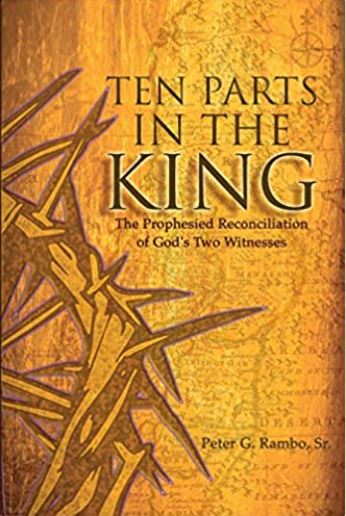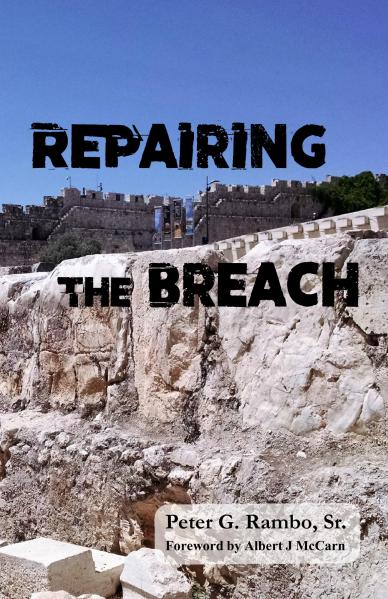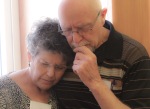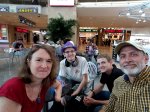I received a somewhat cryptic text yesterday morning from a dear friend and regular reader.

By definition, moving a large group ‘by their hosts’ requires organization and leaders. Exampled here in picture are Americans troops marching down the Champs-Elysees upon the liberation of Paris.
It said,
Bney thought on second exodus-last parsha in 6:26 says they left out in their ranks… not as a mish mosh….. There was leadership in place.
The single criticism I have heard most often of B’ney Yosef is that it is not our job to become organized. The Mashiach, according to general criticism, does everything. We don’t need to do anything, we simply need to, in the words of another good friend, “decide what flavor ice cream we want.”
While I have long been convinced that the Messiah doesn’t magically snap his fingers and make everything better, I am increasingly understanding that the transition from this age to the Messianic age will require a considerable amount of sweat on our part and a willingness to work. Hard. And, that includes the hard work of humbling ourselves and coming together to walk in unity! And, coming together requires organization.
Following is a terrific article by Ephraim and Rimona Frank about what this transition might look like. Interestingly, some of their insight comes from the same verse cited by my reader above, as well as a dozen references dealing with organization, both civil and religious, well before entering the Land. More importantly, this article should make us ask some very hard questions, not the least of which is in the final paragraph of the article… Congregations vs. communities?
In a little over a week, B’ney Yosef North America will host a Summit in Mesa AZ to further explore some of these issues and what we can and should be doing at this hour to facilitate bridge building and gathering of God’s people who belong (whether they know it or not) to the house of Yosef. There is still room for you or someone you help send to be there and represent your fellowship. Contrary to the opinions of the dissenters who prefer to do nothing, this is very important!! Plan to be there!
Now here is the article in full. I can’t wait for the follow-on installments and the discussion they are sure to foster.
Friday, February 3, 2017
A Wilderness Nation or a Nation in the Wilderness
When our Hebrew forefathers were in Egypt they were still looked upon as a nation within a nation, as their forefather was called from the womb to be a “goy” (one people one nation. (See Genesis 25:23). However, they were a people living within a nation, and governed by that nation. We see the evidence of this when YHVH had to obtain (via Moshe and Aaron) Pharaoh’s ‘legal’ permission to take His people out (e.g. Exodus 6:10-11, 14:17). However, even in their debased conditions the Hebrews did have elders with some type of governing authority, as is evidenced, for example, by Moses calling the elders together to tell the people about their impending exodus (ref. Exodus 3:16-17). Then again, just before their departure from Egypt, Moses told every family elder to take a lamb for their respective houses/homes (ref. Exodus 12:21). But it was only after departing from Egypt that YHVH recognized and declared Israel’s national identity as a kingdom of priests and a set apart nation (ref. Exodus 19:6), not without placing conditions upon them. At that point they were still without territory, and as nomads they had no permanent residency. Nevertheless, this declared nation-in-the- making had a recognized governmental administration during its wilderness journey; both civil and religious, as well as already recognizable elders from their time in Egypt, as pointed out above. The Hebrew word for elder is “za’ken” and means an old person or someone with seniority. The elders were often first born males, or ones who had proven their faithfulness in family and community affairs. This we have seen previously in the family of Jacob (as exemplified by the difference between Reuben and Judah), before the brothers went to Egypt the second time (ref. Genesis 42; 43).
The wilderness nation, or nation in the wilderness, was subject to the dominion and rule of the Almighty One of their forefathers. Moshe and Aaron were YHVH’s choice to lead and to basically judge the people’s disputes, until Moshe’s father-in-law stepped in and suggested that they needed to share the responsibilities by selecting or vetting men with certain qualifications. Thus, while not taking away from the kingship and rule of the Elohim of Israel, Jethro proposed the following regarding these potential officers: “And you shall teach them the statutes and the laws, and show them the way in which they must walk and the work they must do. [This is foundational; otherwise the people will do what is right in their own eyes]. Moreover you shall select from all the people able men, such as fear Elohim, men of truth, hating covetousness; and place such over them [the people] to be rulers of thousands, rulers of hundreds, rulers of fifties, and rulers of tens. And let them judge the people at all times. Then it will be that every great matter they shall bring to you, but every small matter they themselves shall judge. So it will be easier for you, for they will bear the burden with you. If you do this thing, and Elohim so commands you, then you [Moshe] will be able to endure, and all this people will also go to their place in peace” (Exodus 18:20-23 emphasis mine).
Just after arriving at the Mountain, in the third month, Jethro brought Moshe’s wife and children to him, reuniting the family (see Exodus 18:5). It was at that time that Jethro noticed that his son-in-law was overwhelmed with the responsibility of judging the multitudes, hence his instructions as we read above. Moshe took the advice and chose (perhaps under the guidance of the Spirit) seventy elders from the tribes of Israel. These selected ones were most likely already elders in their tribes. Later, after the giving of the Torah and the building of the Tabernacle, we see Moshe again calling the seventy elders for a special meeting around the Tabernacle. On this occasion YHVH bestowed on them the same Spirit that was on Moshe as a sign to the people (of His approval), and they all prophesied (just that one time). Here is the account: “So YHVH said to Moses: ‘Gather to Me seventy men of the elders of Israel, whom you know to be the elders of the people and officers over them; bring them to the tent of meeting, that they may stand there with you. Then I will come down and talk with you there. I will take of the Spirit that is upon you and will put the same upon them; and they shall bear the burden of the people with you, that you may not bear it yourself alone;” (Numbers 11:16-17).
Thus by instating these elders, the initial foundation of a civil administration was laid, while the spiritual leadership was invested in Aaron and the priesthood. Moshe, for his part, was responsible for overseeing both offices.
In our day it is Yeshua who is gathering the people of Elohim, restoring our lost identity to us, and anointing us with the Spirit of Holiness. Thus the words of the prophets of old are being rapidly fulfilled. One such relevant prophetic utterance is found in Ezekiel 20:34-35, reaffirming that YHVH intends to gather the seed of Israel from all the countries where He sowed them/us and to bring them/us back to the land of promise. Moreover He continues to declare: “And I will bring you into the wilderness of the peoples, and there I will plead My case with you face to face” (v. 35). In verses 36 and 37 He further elaborates His plan, furnishing us with important details that we need to pay attention to: “Just as I pleaded My case with your fathers in the wilderness of the land of Egypt, so I will plead My case with you,’ says the Lord YHVH. I will make you pass under the rod, and I will bring you into the bond of the covenant; I will purge the rebels from among you, and those who transgress against Me; I will bring them out of the country where they dwell, but they shall not enter the land of Israel. Then you will know that I am YHVH”.
Whereas the above-mentioned “wilderness” may not be a physical place, like the one that our forefathers dwelt in for forty years, but rather a ‘condition’, we too, like them, are and will be sifted during that time. In other words, our present time frame is one of preparation, which will no doubt intensify as time goes by. While “passing under the rod” (again, like our ancestors), meticulous attention to our spiritual condition is required of us. YHVH even uttered that he would bring out the transgressors as well as the rebels from our ranks, but they will not enter with those who have learned righteousness through obedience. And again, like our forefathers, we also need to consider the setting up of functional administration which pertains to our community life, to the families within those communities, and to our individual relationships with each other and with those outside, that is, those who reside in the wilderness/world.
With much less of a visible reality and structure (when compared to our forefathers’ situation), and being redeemed under the renewed covenant, how does this wilderness pattern as it was experienced then, pertains to us in this day and age in the proverbial, rather than literal, wilderness?
The above quoted Ezekiel scripture gives us a clue as to being measured and tried during this time period and under these conditions. And so, again, with that in mind, as well as with the details that are laid out before us from Israel’s forty years journey, how do we transition from a religious congregational setting and mind set to a more community minded life style, while bearing in mind the fact that we are in an “under the rod” reality?
To be continued…




















































































































Thank you Pete,
It seems that the difficulties lie in getting over the leadership structures we have been in thru our religious upbringings. We have lost, in great measure, the art of eld-ing. An elder builds relationships and EARNs respect thu his faithfulness to his role.
The whole body will be strengthened when these elders walk among us, come into our homes, know us.
LikeLike
Agreed, but it means more than elders who think of kol Israel as primarily a religious body or congregation. We are a people with civil purpose and function as well. This involves business, schools, banking, economy, etc… Congregational mindset, historically, does not pursue all theses other avenues but leaves them to the state. A true community mindset will produce leaders who develop all spheres within which we operate as a people. That is how we cease to be denominations (divisions/cliques) and begin to be a nation.
LikeLiked by 1 person
Yes, yet if we look back to The Hebrews in Mitzrayim, they had elders that were known in the community. If there were congregations these elders were there too. We do not yet have communities. We are scattered or sown into the world. The need to gather i.e.: National Shabbat’s , is still as I see it a great need.
I think elders within a community do recognize gifting and make room for such gifts as Administration, Servanthood, and more.
I don’t see an elder as a religious position as much as a community responsibility.
LikeLiked by 1 person
And, that would have been the primary function of the elders Moshe encountered.
LikeLiked by 1 person